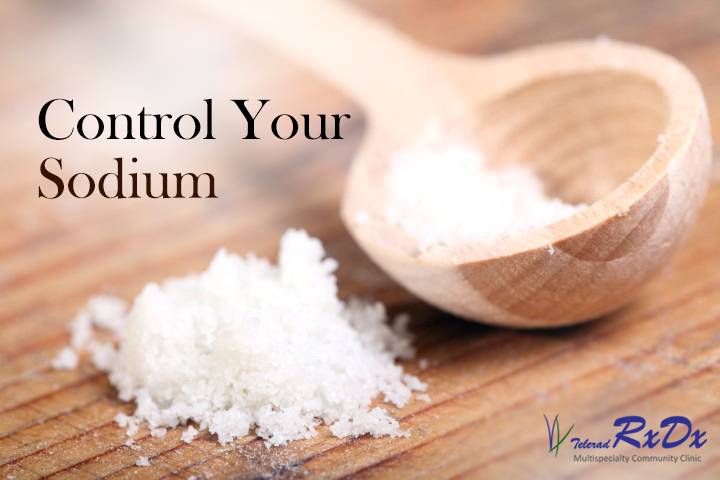
I have heard people saying all the time that “we don’t eat too much of salt” but are still struggling with blood pressure issues. What we don’t realize is most of it doesn’t come from the table salt but from the packaged and restaurant foods. So here are some tips to control your sodium intake:
While shopping:
* Read your labels – Every food product in the market has nutrition labels .Read them consciously and then choose the lowest sodium product. If possible minimize the consumption of such foods.
* Pick fresh than bottled & canned – when it comes to choose products which are preserved in broth or saline solution and are bottled and canned, it would be wise to go for fresh product if available.
* Be conscious when you choose your dips and dressings – products like soy sauce, salad dressings, dips, ketchup, spreads can be high in sodium. Be careful while picking them up.
While cooking:
* Use of other herbs & spices may reduce the need of salt like onion, ginger garlic, vinegar, lemon, mint, nutmeg, basil, cardamom, chilli, cinnamon, coriander, dill, cumin, turmeric, black pepper.
* Avoid adding salt to boil pasta and rice or while preparing wheat flour dough.
* Cook by grilling, roasting, & sautéing which bring natural flavors of food reducing the need to add salt.
* Take potassium rich foods as it counter the effects of sodium & may help to control your blood pressure. E.g. sweet potatoes, potatoes, greens, tomatoes, kidney beans, oranges, banana etc.
* Don’t add salt to your salad & curd preparations.
While eating out:
* Go for steamed, baked, grilled, roasted options rather than pickled, barbecued, cured, smoked, or with soy, miso, or teriyaki sauce.
* Control your portion size so in other way you control sodium intake as well.
LONA salt: This is one of the most common salt substitute in which the amount of sodium is replaced by potassium. Many people can use them, however in certain medical conditions like kidney disorders or using medications which might interact with potassium, it is not advisable. Talk to your dietitian before using any salt substitute.
Ratika Vinchurkar is a Clinical and Lifestyle dietitian, currently practicing at RxDx. Experienced in treating nutritionally all kinds of degenerative and lifestyle disorders like Diabetes, Hypertension, Thyroid Disorders, Cardiovascular disorders, renal disorders and other chronic diseases; Her practical approach towards the lifestyle diet modification rather than just prescribing strict regimens endear her to her patients. She holds a master’s degree in Food and Nutrition and favors the theory of “you are what you eat”.




